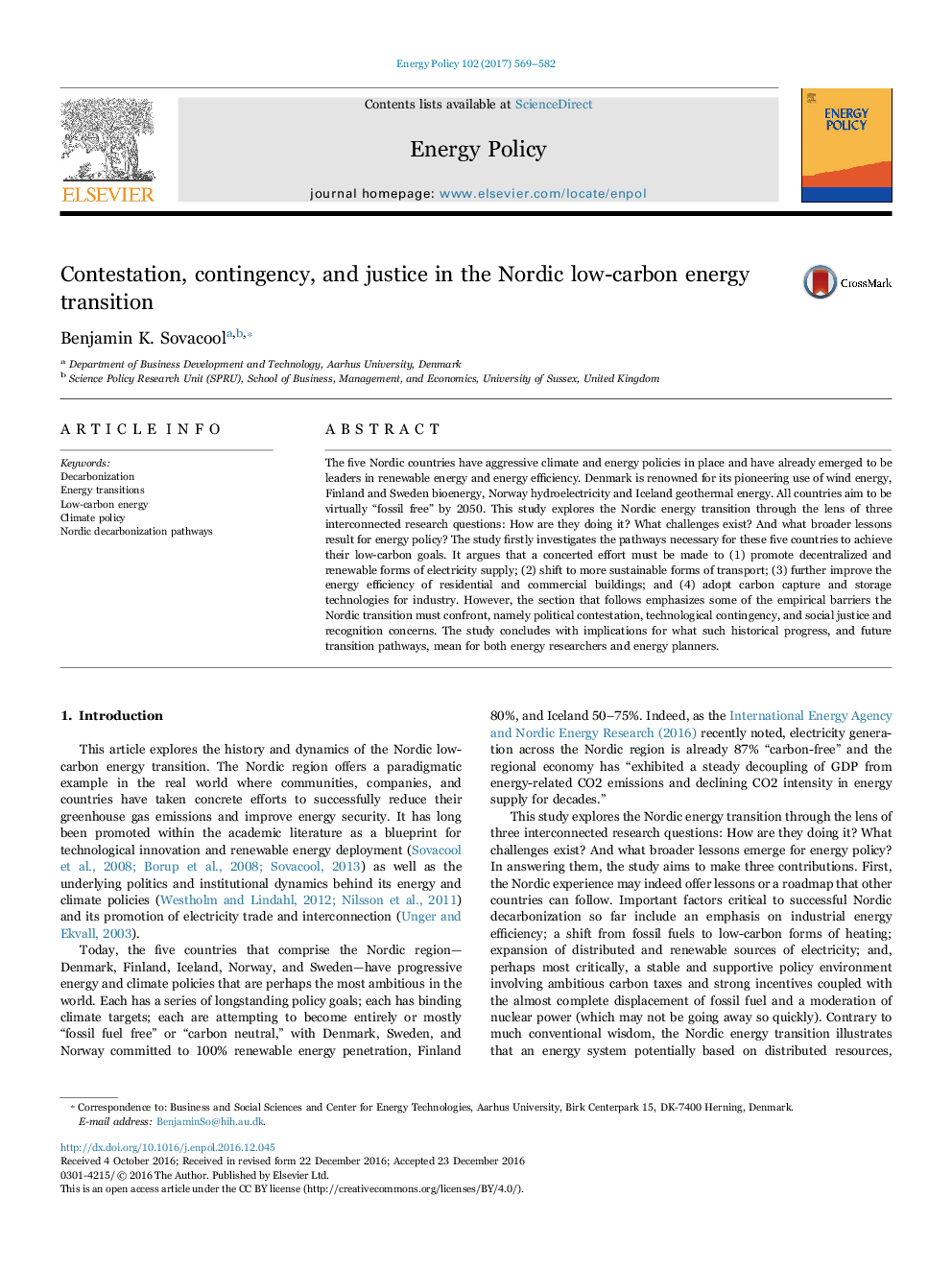ترجمه فارسی عنوان مقاله
مخالفت، احتمالی و عدالت در انتقال انرژی کم کربن شمال اروپا
عنوان انگلیسی
Contestation, contingency, and justice in the Nordic low-carbon energy transition
| کد مقاله | سال انتشار | تعداد صفحات مقاله انگلیسی |
|---|---|---|
| 103552 | 2017 | 14 صفحه PDF |
منبع

Publisher : Elsevier - Science Direct (الزویر - ساینس دایرکت)
Journal : Energy Policy, Volume 102, March 2017, Pages 569-582
ترجمه کلمات کلیدی
کربن زدایی، انتقال انرژی، انرژی کم کربن، سیاست آب و هوا، مسیرهای نابود سازی نوردیک،
کلمات کلیدی انگلیسی
Decarbonization; Energy transitions; Low-carbon energy; Climate policy; Nordic decarbonization pathways;

